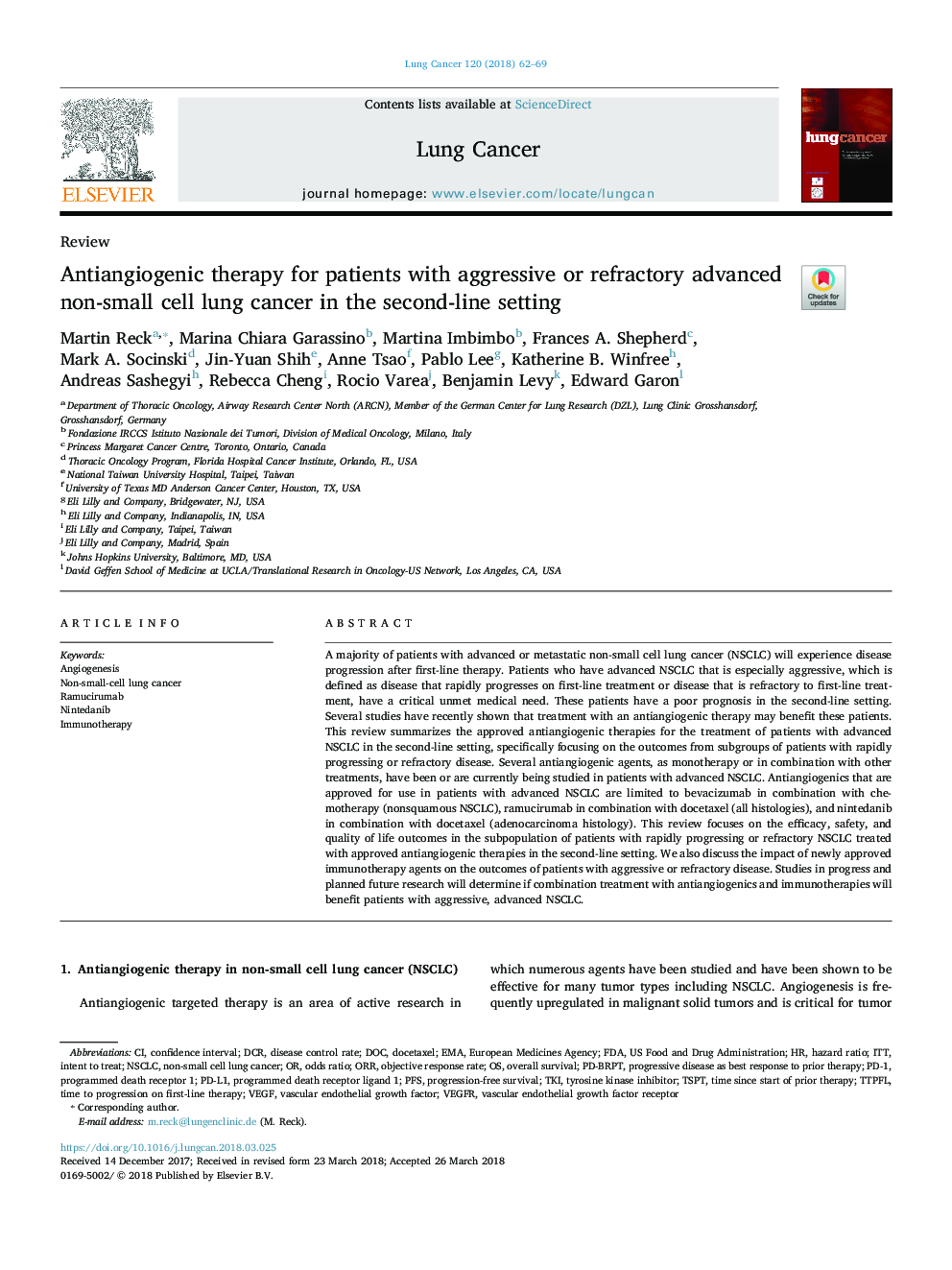| Article ID | Journal | Published Year | Pages | File Type |
|---|---|---|---|---|
| 8453794 | Lung Cancer | 2018 | 8 Pages |
Abstract
A majority of patients with advanced or metastatic non-small cell lung cancer (NSCLC) will experience disease progression after first-line therapy. Patients who have advanced NSCLC that is especially aggressive, which is defined as disease that rapidly progresses on first-line treatment or disease that is refractory to first-line treatment, have a critical unmet medical need. These patients have a poor prognosis in the second-line setting. Several studies have recently shown that treatment with an antiangiogenic therapy may benefit these patients. This review summarizes the approved antiangiogenic therapies for the treatment of patients with advanced NSCLC in the second-line setting, specifically focusing on the outcomes from subgroups of patients with rapidly progressing or refractory disease. Several antiangiogenic agents, as monotherapy or in combination with other treatments, have been or are currently being studied in patients with advanced NSCLC. Antiangiogenics that are approved for use in patients with advanced NSCLC are limited to bevacizumab in combination with chemotherapy (nonsquamous NSCLC), ramucirumab in combination with docetaxel (all histologies), and nintedanib in combination with docetaxel (adenocarcinoma histology). This review focuses on the efficacy, safety, and quality of life outcomes in the subpopulation of patients with rapidly progressing or refractory NSCLC treated with approved antiangiogenic therapies in the second-line setting. We also discuss the impact of newly approved immunotherapy agents on the outcomes of patients with aggressive or refractory disease. Studies in progress and planned future research will determine if combination treatment with antiangiogenics and immunotherapies will benefit patients with aggressive, advanced NSCLC.
Keywords
FDADCRNintedanibRamucirumabEMAPD-L1ORRDOCPD-1TKIVEGFRProgrammed death receptor 1PFsAngiogenesisEuropean Medicines agencyUS Food and Drug AdministrationimmunotherapyITTprogression-free survivaloverall survivalDocetaxelNon-small-cell lung cancerNSCLCNon-small cell lung cancerconfidence intervalVascular endothelial growth factorVascular Endothelial Growth Factor (VEGF)Intent to treatTyrosine kinase inhibitorobjective response rateDisease control ratehazard ratioodds ratiovascular endothelial growth factor receptor
Related Topics
Life Sciences
Biochemistry, Genetics and Molecular Biology
Cancer Research
Authors
Martin Reck, Marina Chiara Garassino, Martina Imbimbo, Frances A. Shepherd, Mark A. Socinski, Jin-Yuan Shih, Anne Tsao, Pablo Lee, Katherine B. Winfree, Andreas Sashegyi, Rebecca Cheng, Rocio Varea, Benjamin Levy, Edward Garon,
